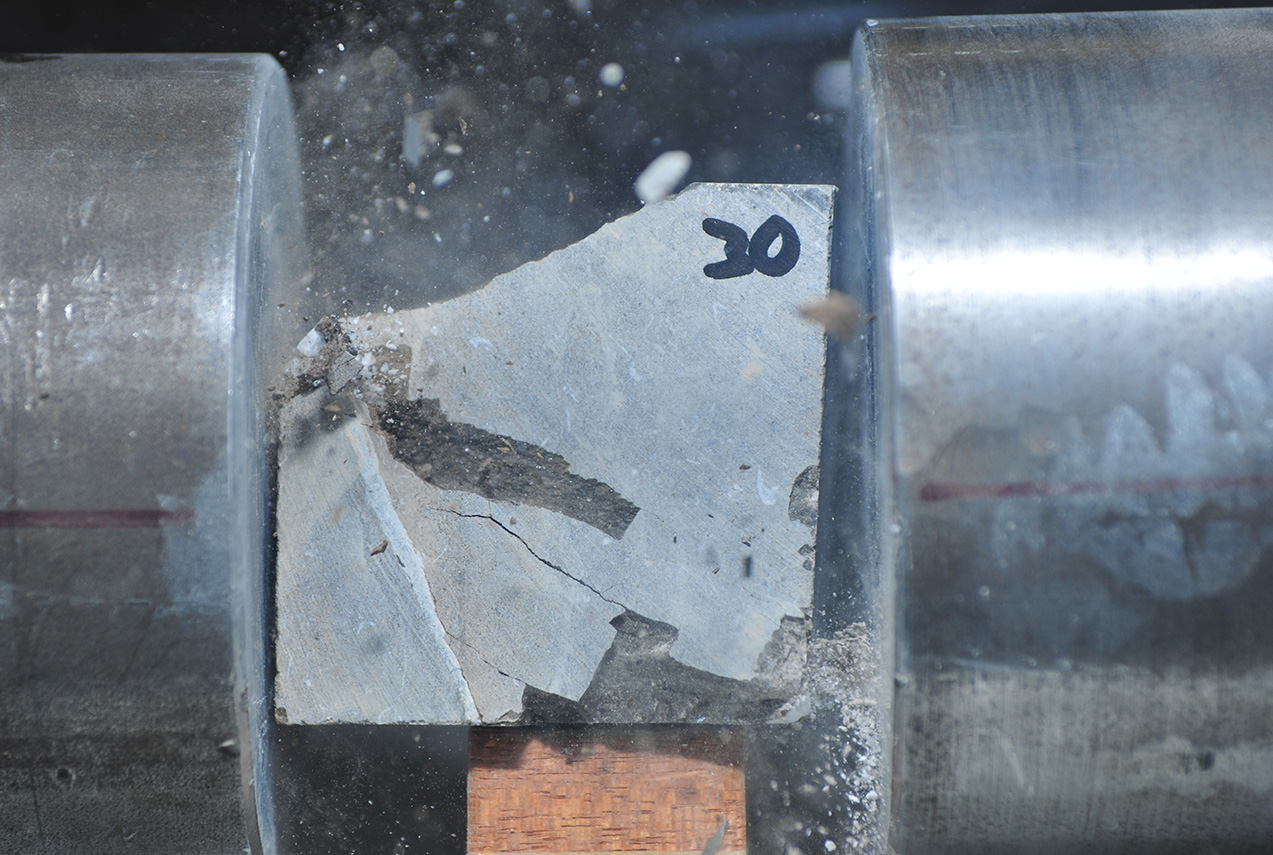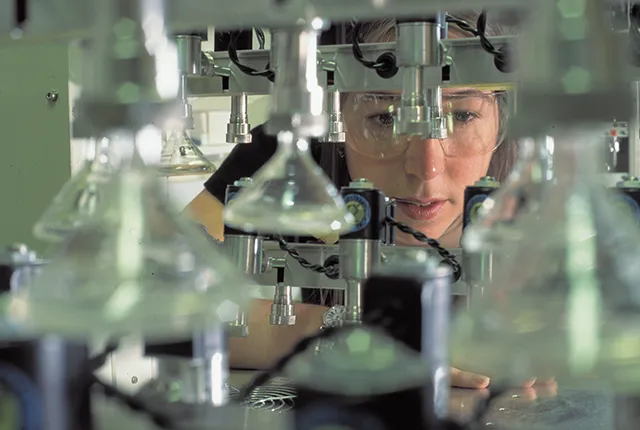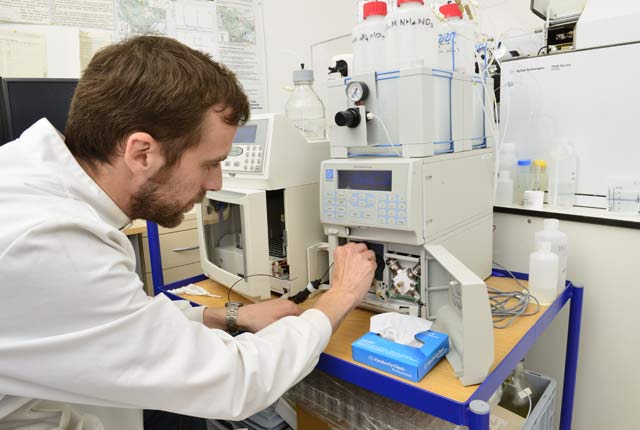The Strengthening African capacity in soil geochemistry to inform agriculture and health policies project was funded by the Royal Society Department for International Development (RS-DFID) Africa Capacity Building Initiative, Round 1 (2015–2020).
Project details
Understanding soil geochemical processes is essential to support policies in agriculture (e.g. liming; organic residue incorporation) and public health (e.g. mineral deficiencies and toxicities). We aimed to increase knowledge and strengthen capacity in soil geochemistry in Malawi, Zambia and Zimbabwe. A cross-disciplinary doctoral training network encompassed:
- analytical chemistry
- geospatial integration and analyses
- soil management
- key vocational skills
Who was involved?
This project involved key partners from universities and research institutes, led by the UK, to facilitate capacity strengthening in each of the African countries, centred on one PhD project per country and wider institutional strengthening.
Lead project partners
UK
- Prof Martin Broadley (School of Biosciences, University of Nottingham)
- Dr Michael Watts (inorganic geochemistry team, British Geological Survey)
Malawi
- Dr Patson Nalivata (Department of Crop and Soil Sciences, Lilongwe University of Agriculture and Natural Resources)
- Dr Allan Chilimba (Department of Agricultural Research Services, Ministry of Agriculture)
Zambia
- Dr Godfrey Sakala (Soils and Water Management Research, Zambia Agriculture Research Institute, Ministry of Agriculture)
- Dr Benson H Chishala, (Land Management Specialist, University of Zambia)
- Prof Kokoma Maseka (Chemistry Department, Copperbelt University)
Zimbabwe
- Prof Paul Mapfumo (Department of Soil Science and Agricultural Engineering, University of Zimbabwe)
- Mr Emmanuel Chikwari (Department of Research and Specialist Services, Chemistry and Soil Research Institute)
Research context and significance
The UN Sustainable Developments Goals (SDGs) emphasise the need for improvements in health and wellbeing (SDG 3), and the removal of poverty (SDG 1) and hunger (SDG 2). Even where staple food is sufficient, ‘hidden hunger’ from mineral deficiencies (such as zinc, iron, iodine, calcium and selenium) is prevalent. These also affect the wider SDGs by causing cognitive dysfunction, growth retardation, increased mortality and disease (SDGs 4, 5, 10 and 15).
Soil geospatial drivers of primary production and hidden hunger, such as the geochemical limits of soil–plant micronutrient transfer, are widely recognised. However, understanding and integrating soil geochemical processes at multiple scales for agricultural and health purposes has not yet been achieved in sub-Saharan Africa, due to data gaps and technical and analytical capacity constraints. Understanding soil geochemical processes is essential to support agricultural and public health policies.
Research and training
Research and training focused on PhD training in three core projects:
- Characterising geospatial variation in zinc and iron bioavailability from tropical soils (Zimbabwe) — Muneta Grace Manzeke
- Understanding the biogeochemical dynamics of selenium and iodine in tropical soils and the effects of soil management (Malawi) — Ivy Ligowe
- Characterising the mobility of metal bioavailability from tropical soils (Zambia) — Belinda Kaninga
Wider institutional strengthening goals were facilitated by cross-institutional and cross-country knowledge exchange. The PhD students were seconded to the UK for at least four weeks each year and the consortia met for an annual network/training event, rotating through the African countries (the first network meeting was in Harare in September 2015). The PhD students were also encouraged to network across each African country.
Additional PhD projects aligned to this project include:
- Chromium speciation: understanding the mobility and bioavailability mechanisms for chromium in tropical soils — Elliott Hamilton (part-time BGS staff)
- Development of a urinary selenium bioassay — Felix Phiri (Malawi, Ministry of Health)
- Iodine dynamics of soil to plant transfer — Olivier Humphrey (Centre for Environmental Geochemistry)
Outputs
Press release
- Muneta Grace Manzeke’s award for work on tackling ‘hidden hunger’
Blogs
- The start of my PhD research into iodine deficiency: Olivier Humphrey, GeoBlogy, 2015
- Soil geochemistry for agriculture and health: Michael Watts and Martin Broadley, GeoBlogy, 2015
- Combatting malnutrition in sub-Saharan Africa: Grace Manzeke, GeoBlogy, 2015
- Chromium in crops: Elliott Hamilton, GeoBlogy, 2015
- Random variables and field sampling: Murray Lark, GeoBlogy, 2015
- Geochemistry brings societal benefits to sub-Saharan Africa: Michael Watts, GeoBlogy, 2015
- The future is Africa: Michael Watts, GeoBlogy, 2014
You may also be interested in

Science facilities
BGS operates and maintains a wide range of state-of-the-art laboratories and other facilities, which underpin virtually all of our research.

Centre for Environmental Geochemistry
Focusing on the use of geochemistry in research, training and teaching.

Inorganic Geochemistry Facility
Providing high-quality analytical expertise and specialist services for the production and geochemical interpretation of inorganic data.


